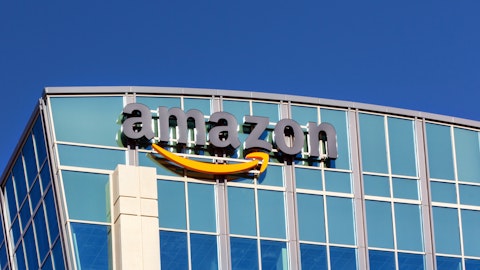Kynikos Associates Founder Chanos: We’re Still Short Caterpillar (CNBC)
Famed short-seller Jim Chanos said that the fundamental story for Caterpillar has not changed and that he is still betting against the company. “The collapse has not happened. The unwind has not happened. That’s ahead of us, not behind us,” the founder of Kynikos Associates said Wednesday in an interview with CNBC’s Scott Wapner on “Halftime Report.” While investors have seen Caterpillar as a way to invest in construction and growth in China, Chanos explained that the bubble in real estate and debt in the country hasn’t happened yet.

Loeb Reinsurer Cites Lesson of Failed Marriages in Shunning M&A (Bloomberg)
Third Point Reinsurance Ltd., co-founded by hedge-fund manager Dan Loeb, likened the risk of mergers and acquisitions to picking a spouse without being aware of how much can go wrong. “Just like marriage, in M&A the 20 percent that work are so beautiful it inspires us all” in the industry about the possible benefits of finding a partner, Chief Executive Officer John Berger said Wednesday at a conference. However, “50 percent of marriages end in divorce.” Third Point Re has resisted the temptation to pursue a deal as insurers have increasingly been seeking acquisitions or selling themselves to rivals in combinations that add scale and diversify risks. Endurance Specialty Holdings Ltd. acquired Montpelier Re Holdings Ltd. last year and then agreed this month to sell itself to Japan’s Sompo Holdings Inc.
Steven Cohen May Return to Hedge Fund Industry When Ban Expires (The New York Times)
Steven A. Cohen, a billionaire investor barred from managing money for others, is one step closer to making his return to the hedge fund industry. Mr. Cohen, whose former hedge fund pleaded guilty to insider trading charges, has confirmed that a new investment firm he opened this year will probably begin raising money from outside investors in early 2018. “I think we’re leaning that way,” Mr. Cohen, 60, said in a recent interview at his office in Stamford, Conn. “But we haven’t made a final decision.” Mr. Cohen, considered by many to be one of the most successful stock traders of his generation, said he expected to make that decision in the next three to four months.
Billionaire Hedge Fund Manager Peltz On Activism, The Election And Rate Hikes (CNBC)
Billionaire hedge fund manager Nelson Peltz shared his market views in an exclusive interview with CNBC’s Scott Wapner on Wednesday. Peltz is chief executive officer of Trian Fund Management. The firm manages more than $10 billion, according to its website. On the market environment, “Things are not as nearly as bad [as people think] … there is huge opportunity on the cost side [in corporations],” he said. On activists’ bad name: “Activist has become somewhat of a dirty word … [funds will] behave like highly engaged shareholders as opposed to what the cartoonish meaning of the word activist means,” Peltz said.
Brevan Howard Cuts Management Fee for Listed Macro Hedge Fund (Bloomberg)
Brevan Howard Capital Management LP won’t charge a management fee on profits generated by BH Macro Ltd., a listed fund that invests in the main hedge fund run by the firm. The policy came into effect on Oct. 3, Brevan Howard said in a filing on Wednesday. The new arrangement will also result in Brevan Howard Master Fund Ltd. waiving an operational services fee charged on gains from the BH Macro fund. A company spokesman declined to comment. Brevan, run by billionaire Alan Howard, is contending with investor withdrawals amid losses this year. The firm stopped charging management fees on new investments by existing clients in the master fund and a $1.8 billion multistrategy fund, a person with knowledge of the matter said last month.
Hedge Fund Star Kyle Bass Sees ‘Stagflation’ Coming In 2017 (CNBC)
The U.S. economy is moving into a period of higher inflation but still-tepid growth, posing a difficult investing environment, famed short-seller Kyle Bass said Wednesday. Bass, who made his name betting against subprime mortgages ahead of the 2008 financial crisis, warned that the combination will create an environment of “stagflation,” a term that came into widespread use during the 1970s when both consumer prices and unemployment were on the rise. “You have wages up, you have real estate rent moving up, now you have commodities bouncing. So 2017 is going to be a year of increasing inflation but economic growth lagging,” Bass said during an interview on CNBC’s “Power Lunch.” “We’re moving into a stagflationary environment in my view.”
Liquidators Seeks U.S. Bankruptcy For Platinum Partners’ Funds (Reuters)
Two Platinum Partners hedge funds have sought U.S. Chapter 15 bankruptcy protection as part of an ongoing liquidation effort, according to court documents filed in New York federal court Tuesday. In August, a Cayman Islands court ordered that an outside expert unwind the so-called offshore versions of its flagship hedge fund, Platinum Partners Value Arbitrage, which, along with the firm, is also being investigated by U.S. authorities. That liquidator, RHSW Caribbean, filed the Chapter 15 bankruptcy petition which seeks to protect Platinum’s U.S. assets from creditors while an insolvency proceeding is underway in the Cayman Islands. An outside spokesman for Platinum declined to comment.
Corvex Management’s Keith Meister: Blame Shareholders For Twitter’s Acquisition Failure (CNBC)
Shareholders of the reported companies that were interested in Twitter are to blame for the social networking service not being bought, according to activist investor and Corvex Management founder Keith Meister on Wednesday. Meister, who has also worked closely with billionaire Carl Icahn, made his comments as a guest host on CNBC’s “Fast Money: Halftime Report.” He said Twitter’s story is a great example of active investing. “Twitter would have been bought by Salesforce, or Twitter would have been bought by Disney or any one of the number of suitors who supposedly looked at it over the last month had it not been for the shareholders of those companies saying, ‘What are you doing? Why go spend $20 billion dollars to buy this?'” he said.





